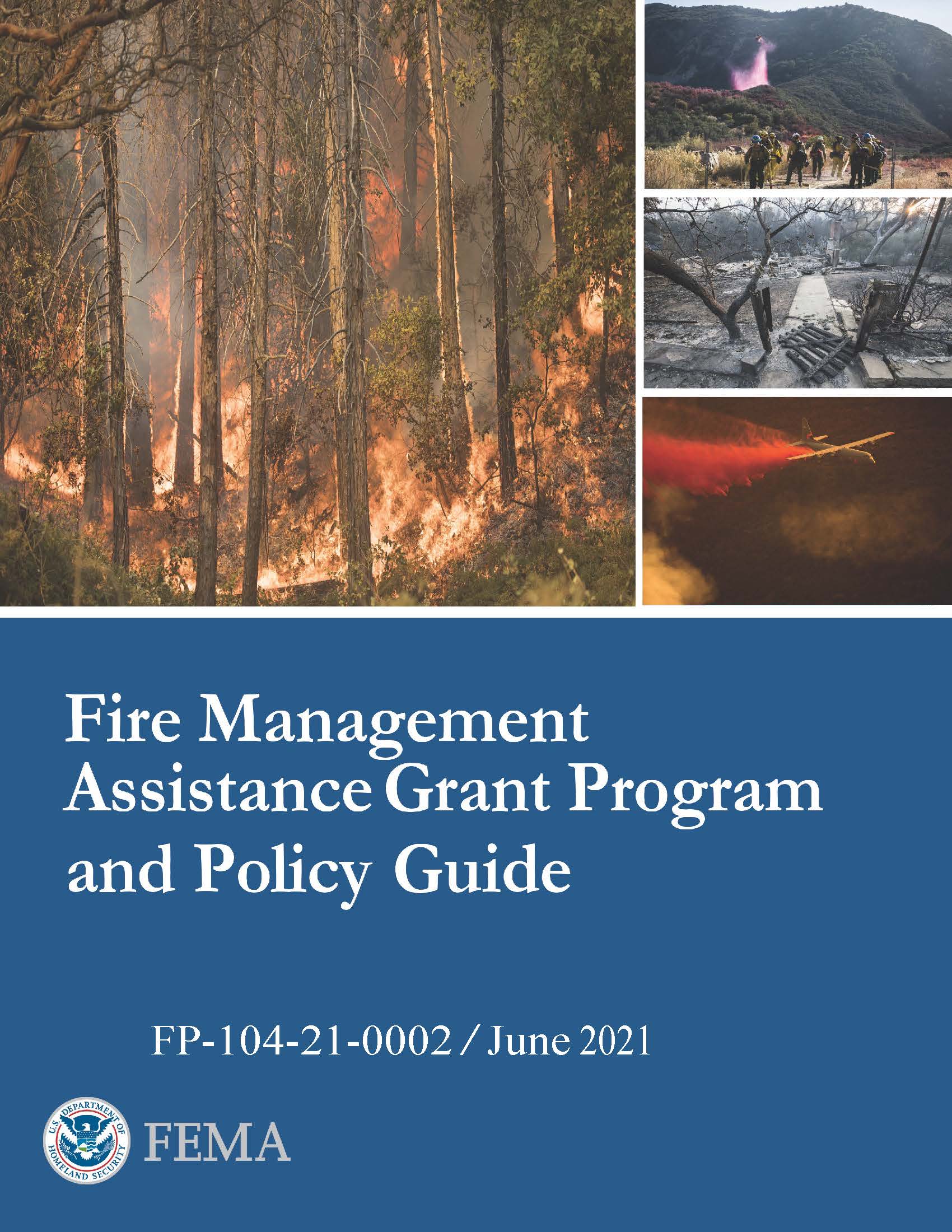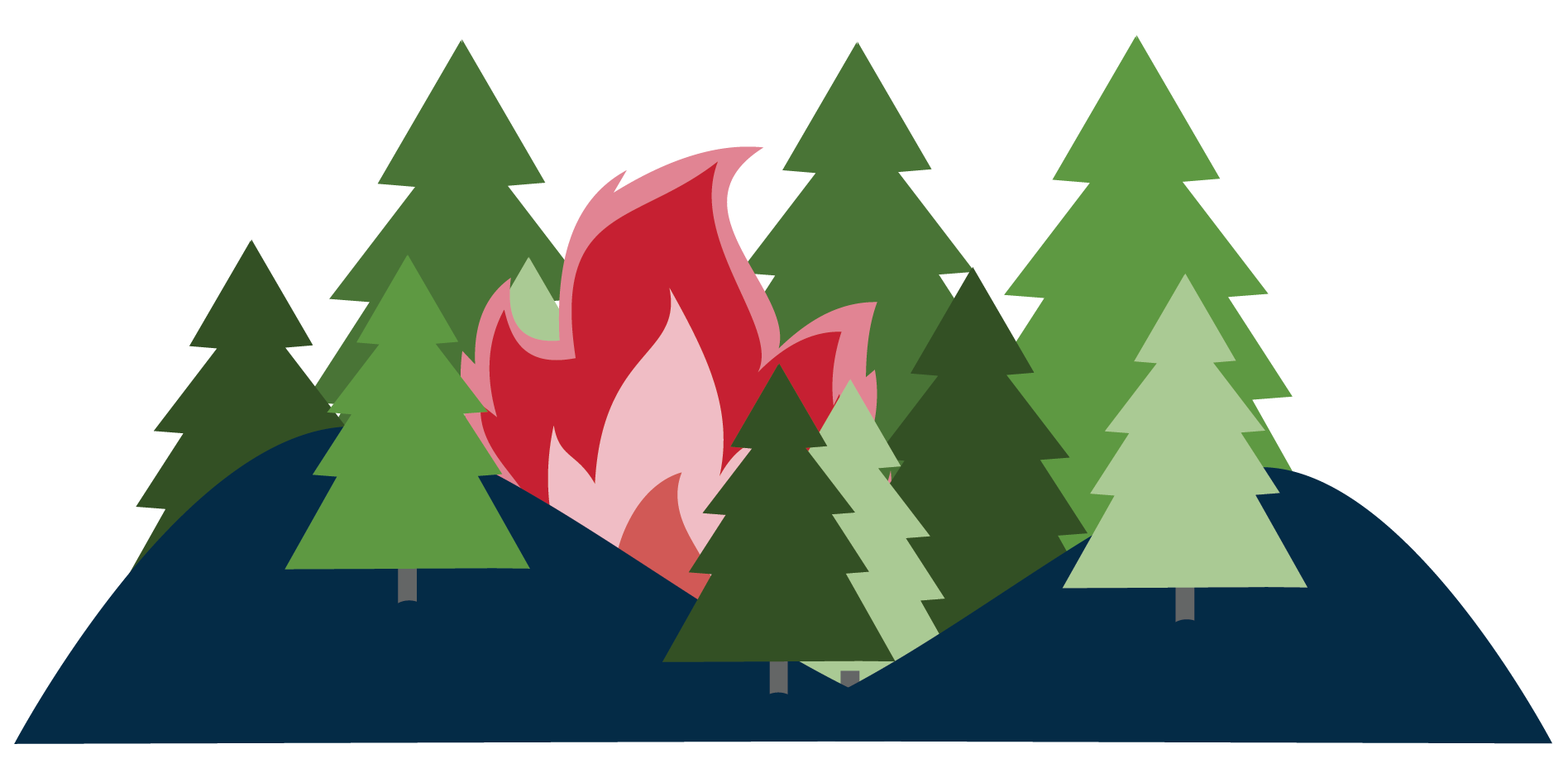Fire Management Assistance Grant (FMAG) Program is available to states, local and tribal governments, for the mitigation, management, and control of fires on publicly or privately owned forests or grasslands, which threaten such destruction as would constitute a major disaster.

FEATURED DOWNLOAD
Fire Management Assistance Grant Program & Policy Guide
This publication describes the FMAG program’s basic provisions, application procedures, and other related program guidance.

The Fire Management Assistance Grant (FMAG) Program provides a 75 percent federal cost share and the state pays the remaining 25 percent for actual costs.
Declaration Process
The Fire Management Assistance declaration process is initiated when a state submits a request for assistance to the FEMA Regional Director at the time a "threat of major disaster" exists. The entire process is accomplished on an expedited basis and a FEMA decision is rendered in a matter of hours.
Before a grant can be awarded, a state must demonstrate that total eligible costs for the declared fire meet or exceed either the individual fire cost threshold -- which is applied to single fires, or the cumulative fire cost threshold, which recognizes numerous smaller fires burning throughout a state.

Learn more in the declaration process fact sheet.

Eligible Types of Work
Eligible firefighting costs may include expenses for:
- Field camps
- Repair and replacement Tools
- Mobilization and demobilization activities
- Equipment use
- Materials and supplies
Fire Management Assistance Options for Tribal Nations
Tribal Nations with eligible costs can access Fire Management Assistance funding from FEMA through one of three ways:
- The Tribal Nation Requests a Disaster Declaration from FEMA: Tribal Nations cannot request their own FMAG directly from FEMA. However, Tribal Nations can request their own emergency disaster declaration or major disaster declaration directly from FEMA to help manage and control fires.
- The Tribal Nation becomes a direct recipient through an existing state FMAG: A Tribal Nation whose lands or property are included in a state FMAG request, can use a state’s FMAG number to work directly with FEMA to manage the assistance. The state will not be involved in management of the FMAG on the Tribal Nation’s behalf. The Tribal Nation may coordinate with their FEMA Tribal Liaison to discuss their options under a FMAG or tribal disaster declaration.
- The Tribal Nation becomes a subrecipient under an existing state FMAG: Tribal Nations can work with their state’s emergency management offices to be included in the state’s FMAG request and become a subrecipient of the state.
For more information about Tribal Disaster Declarations, Visit FEMA’s Tribal Disaster Declaration Webpage and the FEMA Tribal Affairs Hub. For more information on FMAG, visit FEMA’s Fire Management Assistance Grants Program & Policy Guide.
Get Started
Access the key forms and guidance that govern the program, including declaration request forms and policy guides.
Before a grant can be awarded, a state must demonstrate that total eligible costs for the declared fire meet or exceed the fire cost thresholds. View the annual individual and cumulative fire cost threshold numbers.
The IS-1027 course provides an overview of Fire Management Assistance Grant eligibility, including criteria, steps and sequencing of key activities needed to apply.
FEMA's Hazard Mitigation Grant Program (HMGP) has Post Fire assistance available to help communities implement hazard mitigation measures after wildfire disasters.
Active Fire Management Assistance Declarations
Fire Management Assistance Grant (FMAG) Program is available to states, local and tribal governments, for the mitigation, management, and control of fires on publicly or privately owned forests or grasslands, which threaten such destruction as would constitute a major disaster.


